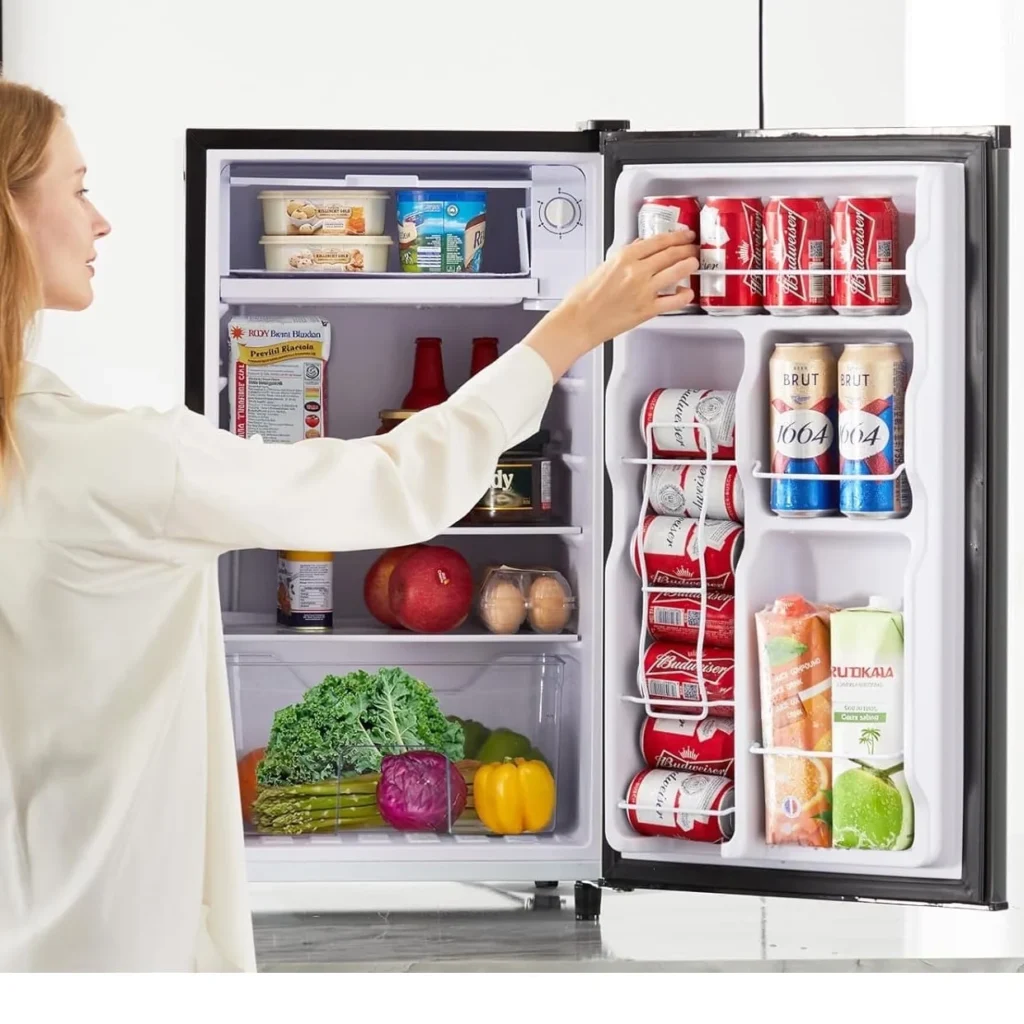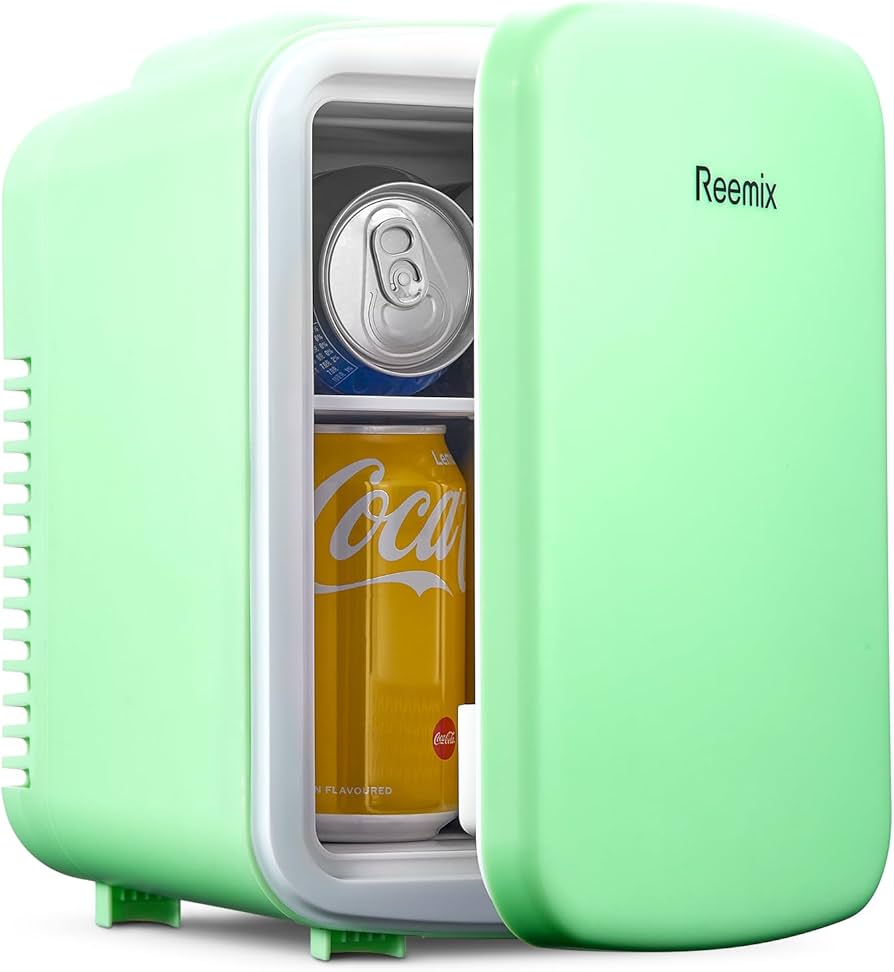Whether you’re outfitting a dorm room, setting up a home office, or simply need extra cold storage, a mini fridge is a practical and space-saving solution. These compact refrigerators offer convenience without taking up too much room, making them ideal for small apartments, bedrooms, or even RVs. With so many styles and features available, finding the best mini fridge for your needs can be surprisingly easy—and fun.

What is a Mini Fridge?
A mini fridge, also known as a compact refrigerator, is a small cooling appliance typically used to store beverages, snacks, and perishable items. Unlike full-sized refrigerators, mini fridges are designed to fit in tight spaces like under desks, in small apartments, or beside a bed.
Most mini fridges offer between 1.7 to 4.5 cubic feet of storage space, with some featuring separate freezer compartments, adjustable shelves, and even lockable doors for added security.

Why Choose a Mini Fridge?
There are plenty of reasons why someone might opt for a mini fridge over a traditional refrigerator. Here are some of the key benefits:
1. Space-Saving Design
Mini fridges are ideal for small spaces such as dorm rooms, studio apartments, RVs, and even garages. Their compact size makes them easy to fit into tight corners without compromising on storage.
2. Energy Efficiency
Most modern mini fridges come with energy-efficient features, consuming far less electricity than standard models. Look for ENERGY STAR ratings when shopping to ensure you’re making an environmentally friendly choice.
3. Portability
Lightweight and easy to move, mini fridges are perfect for anyone who relocates often. Whether you’re moving across campus or into a new apartment, a mini fridge is easy to transport.
4. Affordability
Compared to full-sized refrigerators, mini fridges are much more budget-friendly. This makes them a great option for students or anyone needing an extra fridge without breaking the bank.
5. Versatility
Mini fridges are not just for keeping drinks cold. They can store makeup, medications, and even skincare products, depending on the model.
Popular Types of Mini Fridges
When shopping for a mini fridge, it’s important to know what type best fits your needs. Here’s a quick overview of the most common types:
Single Door Mini Fridge
This is the most popular style and usually includes a small freezer compartment. It’s great for personal use or small offices.

Double Door Mini Fridge
These come with separate compartments for refrigeration and freezing. Ideal for those needing more organization and better temperature control.

Portable Mini Fridge
Perfect for travel or car use, these fridges can plug into a car’s 12V outlet. Some are even equipped with warming functions.

Features to Look For
Choosing the right mini fridge depends on your needs. Here are a few features to consider:
- Adjustable Shelves: Allows you to store larger items or rearrange the interior layout.
- Temperature Control: Essential for preserving a variety of items, from fresh produce to beverages.
- Freezer Compartment: Useful for frozen meals, ice cream, or ice trays.
- Quiet Operation: Especially important for bedrooms or shared workspaces.
- Reversible Door: Offers flexibility in how the fridge opens to match room layout.
Top Uses for Mini Fridges
Mini fridges can serve a surprising number of purposes beyond just food storage. Here are a few common and creative uses:
- Dorm Room Companion: Keeps late-night snacks and drinks within arm’s reach.
- Home Office Essential: A handy way to store coffee creamer, water bottles, and lunch.
- Garage Fridge: Great for keeping drinks cool while working on a project.
- Guest Room Amenity: Adds a luxurious touch to any guest space.
- Skincare Storage: Keeps serums and creams cool for a refreshing application.
Mini Fridge Maintenance Tips
To ensure your room fridge works efficiently and lasts for years, regular maintenance is key.
1. Defrost Regularly
If your room fridge doesn’t have auto-defrost, it’s important to manually defrost the freezer area to prevent ice build-up.
2. Clean the Interior
Use mild soap and warm water to clean shelves, drawers, and walls. Avoid harsh chemicals that may damage the finish.
3. Check the Seal
Ensure the door closes tightly. A loose seal can cause cold air to escape, making the fridge work harder.
4. Keep It Level
Place the fridge on a flat surface to ensure proper cooling performance and prevent vibrations.
5. Avoid Overstuffing
Too many items can block airflow and reduce cooling efficiency. Keep it organized and uncluttered.
Mini Fridge Buying Guide
Before making a purchase, here are a few things to consider:
- Size and Capacity: Think about how much space you need and where you’ll place the fridge.
- Noise Level: If the fridge will be in a quiet room, make sure it runs silently.
- Power Consumption: Look for energy-efficient models to save on electricity.
- Additional Features: Lockable doors, can dispensers, or glass shelves might be a plus depending on your needs.
- Brand Reputation: Go with trusted brands that offer good warranties and customer support.
Recommended Mini Fridge Brands
While many brands offer excellent mini fridges, a few stand out for their performance and reliability:
- GE
- Frigidaire
- BLACK+DECKER
- Midea
- Danby
Each of these brands offers various sizes and features to suit every lifestyle and budget.
Eco-Friendly and Smart Mini Fridges
Sustainability and technology are becoming increasingly important, even in compact appliances. Many mini fridges now come with smart features like:
- Wi-Fi Control
- App Integration
- LED Lighting
- Low Power Modes
Choosing an eco-friendly mini fridge not only saves money on utility bills but also reduces your carbon footprint.
Frequently Asked Questions (FAQs) About Mini Fridges
1. Are mini fridges energy-efficient?
Yes, many modern mini fridges are designed to be energy-efficient, consuming significantly less electricity than full-sized refrigerators. Look for ENERGY STAR-certified models, which are both cost-effective and eco-friendly.
2. Can a mini fridge be used as the main refrigerator?
While mini fridges are great for small-scale storage, they aren’t ideal for long-term food preservation or large households. However, for single individuals, students, or temporary use, they can serve as the primary refrigeration unit.
3. How long do mini fridges last?
A well-maintained mini fridge can last anywhere from 6 to 10 years. Regular cleaning, defrosting, and ensuring proper airflow can extend its lifespan.
4. Can I keep a mini fridge in my bedroom?
Absolutely. Mini fridges are commonly used in bedrooms due to their compact size and quiet operation. Just make sure it’s placed on a flat, ventilated surface to minimize noise and vibration.
5. Do mini fridges come with freezers?
Many mini fridges feature a small freezer compartment, which is ideal for storing ice trays, frozen snacks, or meals. However, the freezing performance may vary depending on the model.
6. Are mini fridges safe to leave on all the time?
Yes, mini fridges are designed to run continuously. However, it’s recommended to occasionally check for frost buildup, ensure the coils are clean, and monitor for unusual noises.
7. Can I store skincare or medicine in a mini fridge?
Yes! Many people use mini fridges for skincare to keep creams, serums, and masks cool. Certain medications also require refrigeration—just ensure the temperature is consistent and appropriate.
8. Do mini fridges make noise?
Most mini fridges operate quietly, but some may emit a low humming sound due to the compressor. For ultra-quiet environments like bedrooms or libraries, consider fridges labeled as “low-noise” or “whisper-quiet”.
9. How cold can a mini fridge get?
The temperature range of a room fridge typically varies from 32°F to 50°F (0°C to 10°C). Some models allow manual or digital temperature control for added precision.

